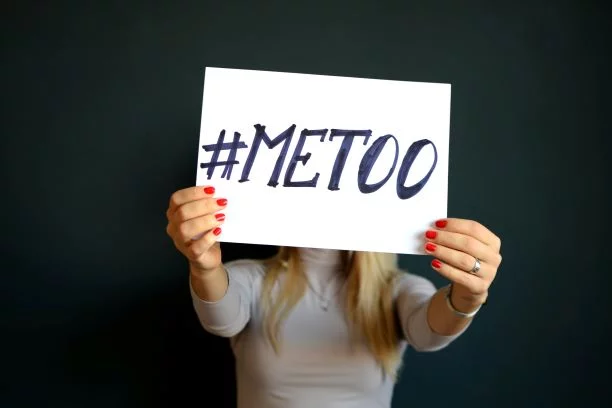No fee unless you win
Experienced Sexual Harassment Lawyer
Get The Justice You Deserve
Harassment based upon gender is illegal. Scroll down to learn more about your rights on the job from a sexual harassment lawyer.
Free Consultation With An Employment Lawyer
Stand up. Fight Back.
Brandon Ortiz has represented numerous victims of sexual harassment. Brandon understands the unique psychological toll that sexual harassment exacts on its victims. He knows how to tell your story to maximize the compensation you deserve for the harm that you have suffered. He also understands that sexual harassment is almost always a systemtic problem. Sexual harassment is rarely the result of “one bad apple.” Sadly, corporate culture reflexively protects bosses, managers and “stars” who abuse their power. Businesses frequently retaliate against women who assert their rights in the workplace. Brandon is experienced in exposing these systematic defects to hold corporations accountable.

What is sexual harassment?
There are two types sexual harassment, “quid pro quo” sexual harassment and hostile work environment sexual harassment.
Quid Pro Quo
An employee claiming quid pro quo harassment must prove:
- The employee was subjected to unwanted sexual advances or other unwanted verbal or physical conduct of a sexual nature;
- That terms of employment, job benefits, or favorable working conditions were made contingent, by words or conduct, on the employee’s acceptance of sexual advances or conduct;
- The harasser was a supervisor or manager.
Source: Judicial Council of California Civil Jury Instructions, Instruction No. 2520.
Hostile Work Environment
An employee claiming hostile work environment must prove:
- They were subjected to harassing conduct because of gender or sex;
- The harassing conduct was either severe or pervasive;
- That a reasonable woman (or man, if the employee is male) in the employee’s circumstances would have considered the work environment to be hostile;
- That the employee considered the work environment to be hostile, intimidating, offensive, oppressive, or abusive
- Either of the following:
- A supervisor engaged in the conduct, or
- That supervisors or managers knew or should have known of the conduct and failed to take immediate and appropriate corrective action;
Source: Judicial Council of California Civil Jury Instructions, Instruction No. 2525A.

Frequently Asked Questions
- Rape. Ferris v. Delta Air Lines, Inc., 277 F3d 128, 135 (2nd Cir. 2001).
- Hugs and kisses on the cheek. Zetwick v. County of Yolo, 850 F3d 436, 444-445 (9th Cir. 2017).
- Forcible French kiss, attempting to unfasten employee’s bra, and a vulgar remark in the same week. Hostetler v. Quality Dining, Inc., 218 F3d 798, 806 (7th Cir. 2000).
- Physical groping. Myers v. Trendwest Resorts, Inc., 148 Cal. App. 4th 1403, 1421 (2007).
- Assault or threat of assault. Hughes v. Pair, 46 Cal. 4th 1035, 1049 (2009).
- Repeated sexual remarks by supervisor about employee over a two-year period, including calling her “gorgeous” and “beautiful” rather than by her name, telling her about his sexual fantasies and his desire to have sex with her, commenting on her “ass,” and asking over a loudspeaker whether she needed help changing her clothes. Draper v. Coeur Rochester, Inc., 147 F3d 1104, 1105-1107 (9th Cir. 1998).
- Daily use of the words “bitch,” “slut,” and other crude language. Reeves v. C.H. Robinson Worldwide, Inc., 594 F3d 798, 803 (11th Cir. 2010).
- Co-worker’s frequent viewing of sexual images and videos. Patane v. Clark, 508 F3d 106, 114 (2nd Cir. 2007).
Employees, unpaid interns, volunteers, and independent contractors.
Source: California Government Code section 12940(j)(1).
Yes. Your employer has an obligation to take all reasonable steps to prevent sexual harassment that it knows about or should know about, even if that sexual harassment comes from customers, vendors, or other third parties. If your employer fails to prevent sexual harassment that it could have reasonably prevented, you may be entitled to compensation.
Source: Cal. Gov. Code § 12940(j)(1) and (k).
In some cases, you may be entitled to compensation. You should speak with an employment lawyer to learn whether you are entitled to compensation based upon the unique facts and circumstances of your case.
Source: EEOC v. PVNF, LLC, 487 F3d 790, 798 (10th Cir. 2007).
To assert a claim for hostile work environment, you do not have to prove that you suffered a loss of tangible benefits.
Source: Cal. Gov. Code § 12940(j)(1).
It depends on whether the off-site conduct is connected to work. You may be entitled to compensation if the sexual harassment occured during a work event or work-related travel. However, if the sexual harassment occurred during an event that is after hours and completely unrelated to work, such as a genuinely voluntary and consensual date with a co-worker, then you may not be entitled to compensation. You should speak with an employment lawyer to learn whether you are entitled to compensation based upon the unique facts and circumstances of your case.
Source: Doe v. Capital Cities, 50 CA4th 1038, 1046 (1996); State Dept. of Health Services v. Sup.Ct. (McGinnis),31 Cal. 4th 1026, 1041 fn. 3 (2003).
You may still be entitled to compensation. Many employees are too afraid to speak up because they fear losing their job. They may go months or even years without reporting sexual harassment. Some never report the sexual harassment at all. This is an extremely common situation.
As a general rule, employers are “strictly liable” for sexual harassment by a supervisor. That means the employer owes you compensation even if it was not aware of the harassment by the supervisor at the time, and even if the employer disapproved of it.
The employer can still assert, as a defense at trial, that it would have stopped the supervisor’s sexual harassment if the employee had complained. The employer must prove that it had adequate policies and practices in place to respond to the employee’s complaint. An employee can defeat this defense by showing that the employer did not consistently follow its policies (which is extremely common) or has retaliated against employees who complained in the past. This is not considered a “complete defense,” meaning it would only cut off recovery for some but not all damages from sexual harassment.
You should speak with an employment attorney to find out whether you are entitled to compensation based upon the unique facts and circumstances of your case.
Source: State Dept. of Health Services v. Sup.Ct., (McGinnis) 31 Cal. 4th 1026, 1042 (2003).
You may still be entitled to the compensation if a supervisor knew about the sexual harassment or should have known about the sexual harassment but failed to stop it.
Source: State Dept. of Health Services v. Sup. Ct. (McGinnis), 31 Cal. 4th 1026, 1041 (2003).
No. This is a common misunderstanding. California harassment laws prohibit harassment “because of” gender or sex. Therefore, any severe or pervasive harassment that is motivated by gender — even if that harassment is not sexually explicit or sexual in nature — is illegal.
Source: Cal. Gov. Code § 12940(j)(4)(C); EEOC v. National Ed. Ass’n, Alaska, 422 F3d 840, 842 (9th Cir. 2005); Medina-Rivera v. MVM, Inc., 713 F3d 132, 138, fn. 4 (1st Cir. 2013); see also Lyle v. Warner Bros. Television Productions, 38 C4th 264, 280 (2006) (to establish sexual harassment under FEHA, female plaintiff must prove that “if the plaintiff had been a man she would not have been treated in the same manner”).
No. The law recognizes that sexual harassment is frequely driven by power more than sex. An employee suing for hostile work environment does not have to prove that the harasser was sexually interested or seeking sex.
Source: Cal. Gov. Code § 12940(j)(4)(C).
Free Confidential Consultation
Are You A Victim Of Workplace Discrimination, Retaliation, Or Harassment? Contact Ortiz Law Office For A Free Consultation To Learn Your Rights
This website is an advertisement for legal services. The information provided on this website is for informational purposes only and does not constitute legal advice. An attorney-client relationship does not begin until a formal written contract is signed. If you have legal questions or need legal advice, you should contact an attorney. Nothing contained in this website should be construed as a guarantee or promise of results. Past case results are not indicative of future results and are presented for informational purposes only. The case results presented herein are from cases that Brandon Ortiz had primary day-to-day responsibility for prior to founding Ortiz Law Office, Inc.







